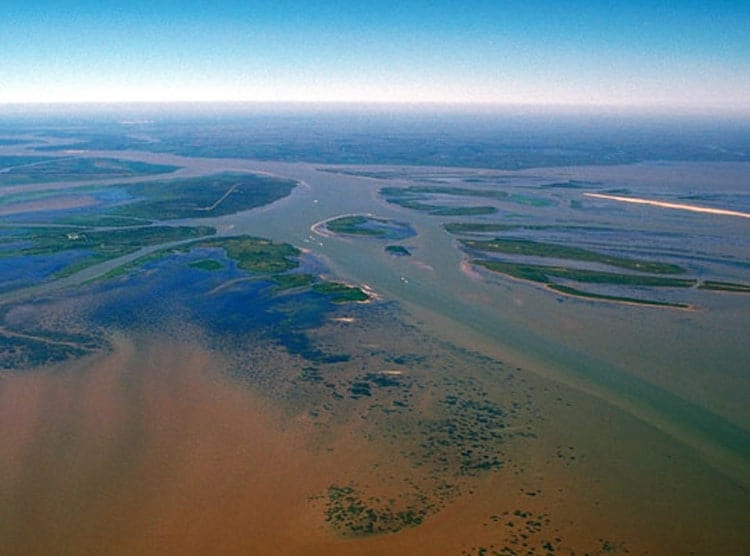Scientists Urge Protection of World’s Deltas
December 3, 2014
Extensive areas of the world’s deltas — which accommodate major cities such as Shanghai, Dhaka and Bangkok — will be drowned in the next century by rising sea levels, according to a Comment piece in this week’s Nature. In the article, Dr. Liviu Giosan, a geologist with the Woods Hole Oceanographic Institution (WHOI), and colleagues call for maintenance efforts to be started now to avert the loss of vast expanses of coastline, and the consequent losses of ecological services, economic and social crises, and large-scale migrations.
The authors state the problems start upstream: deltas are built from sediments deposited at the mouths of rivers, but dams and river engineering have lowered rates of sediment flow. The Nile and the Indus, for example, carry 98 percent and 94 percent less mud respectively than they did 100 years ago. At the coast, rising seas resulting from warmer global temperatures are eroding delta plains, increasing the chance of flooding. Coastal lands lower than a meter in elevation will be inundated within a century.
Lack of quantitative knowledge of basic delta processes is hindering efforts to develop maintenance strategies for deltas, the authors say. At the same time, the role of healthy marshes in coastal processes needs to be more fully understood. Giosan and colleagues call for river sediment flows to be restored, and natural land-building methods to be exploited in delta plains under worldwide monitoring programs coordinated and guided by United Nations committee of experts.
The Woods Hole Oceanographic Institution is a private, non-profit organization on Cape Cod, Mass., dedicated to marine research, engineering, and higher education. Established in 1930 on a recommendation from the National Academy of Sciences, its primary mission is to understand the ocean and its interaction with the Earth as a whole, and to communicate a basic understanding of the ocean’s role in the changing global environment. For more information, please visit www.whoi.edu.


